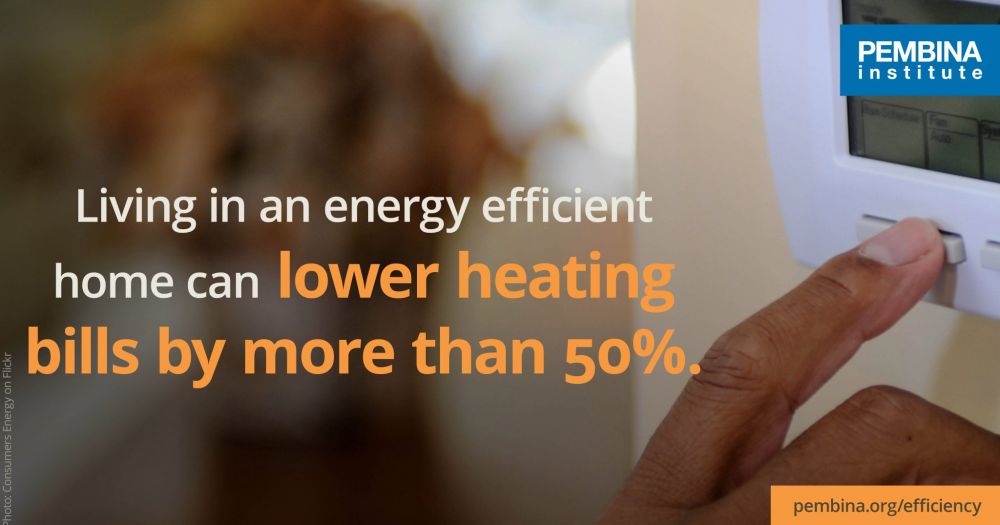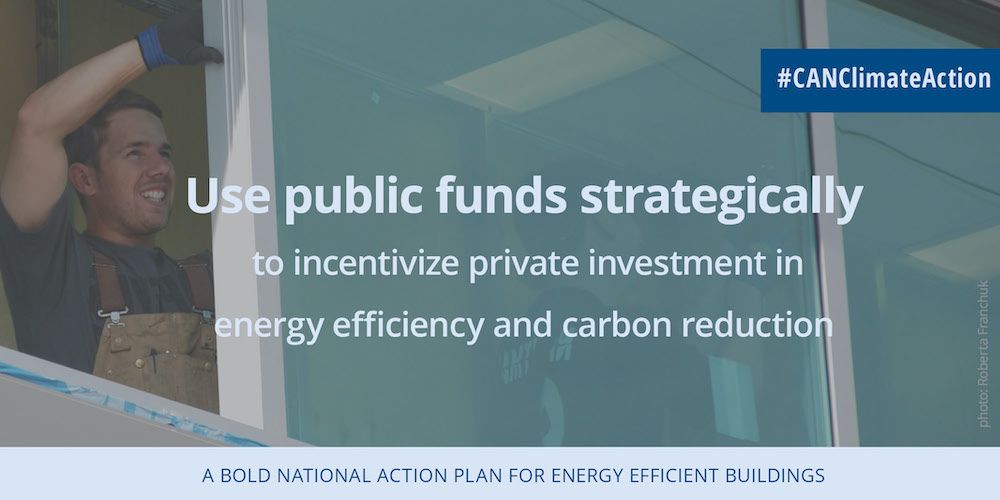Eight months ago, Canada’s first ministers set the stage for bold action in the building sector. They committed in the Pan-Canadian Framework on Clean Growth and Climate Change to pursue some of the lowest cost, most rapidly achievable ways to reduce carbon emissions.
On the heels of the Energy and Mines Ministers’ Conference in St. Andrews, New Brunswick, the time has come for governments at all levels to redouble their efforts and support the rapid and complete implementation of these measures.
The shift to ultra energy-efficient and low-carbon homes and buildings will help Canada reach its 2030 climate target under the Paris Agreement as well as its longer-term decarbonization goals. It will also reduce energy costs for Canadians.
Ten organizations — including the Pembina Institute, Canadian Energy Efficiency Alliance, and The Atmospheric Fund — are urging the federal, provincial, and territorial governments to prioritize swift action on new and existing buildings. We sent a letter to Minister of Natural Resources Jim Carr and Minister of Environment and Climate Change Catherine McKenna.
To improve energy efficiency, reduce energy costs, and create green jobs, our coalition encourages these key federal actions: (1) driving momentum toward “net-zero energy ready” new construction, (2) accelerating retrofits and emissions reductions in existing buildings, (3) improving energy-efficiency standards for appliances, (4) catalyzing private investment in energy efficiency through strategic use of public funds, and (5) leading by example with public buildings.
In addition to the federal government making good on its commitments, the provinces must fulfil their end of the bargain set out in the Pan-Canadian Framework. This includes making a commitment to implement a net-zero energy ready building code in their jurisdiction by around 2030, as British Columbia and Ontario have already done. Provinces should also join the federal government in leading by example with public buildings — requiring that new buildings meet net-zero energy ready standards immediately, and developing a retrofit strategy for existing buildings.
Other necessary provincial actions include adopting the model retrofit code being developed by the federal government, requiring energy labelling and disclosure for homes and businesses by 2019, and bolstering energy-efficiency standards for equipment. Provincial governments have a responsibility to enact supporting legislation in line with the Pan-Canadian Framework where they have the authority to do so, and to share lessons learned along the way with other jurisdictions.
The framework provided the ambition, and now we need to see action and accountability. Moving to an ultra energy-efficient, low-carbon building sector is a win-win for Canadians. When energy efficiency in our homes and buildings goes up, our carbon pollution and utility bills will go down. An energy-efficient home can lower energy bills by up to 50 per cent, and there are already nearly 300,000 jobs in Canada’s green building sector.
The federal and provincial governments can further support this sector by providing targeted training and capacity building to staff, and resources to assist compliance and enforcement with regulations. Governments can work together to provide innovative financing and incentive programs, and combine their funds effectively to capitalize these programs and leverage private investment.
A transparent mechanism needs to be in place to demonstrate the provinces’ accountability for the federal funding they will receive under the Pan-Canadian Framework. This will provide assurance that these funds are being used effectively and in line with Canada’s overall objectives for moving to a low-carbon economy and meeting our climate commitments.
Canada has an important opportunity to transform the built environment and transition to a low-carbon future, while enhancing the performance and liveability of Canadian homes and businesses. Demonstrating a low-carbon building sector that is prosperous and innovative will bode well for a successful shift to clean growth across all sectors of our economy.
Karen Tam Wu is director of the Buildings and Urban Solutions Program at the Pembina Institute, Canada’s leading clean energy think-tank.
Julia Langer is CEO of The Atmospheric Fund.
This op-ed appeared in the Hill Times (Ottawa) on August 30, 2017.











